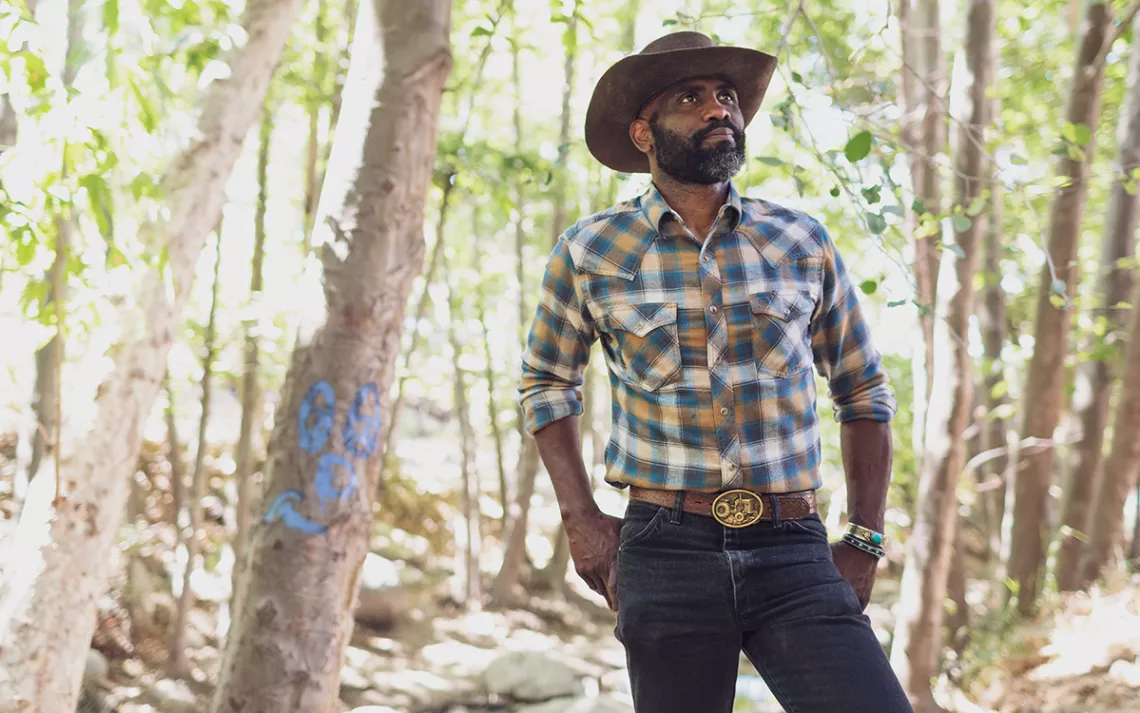An Invitation to Save the Planet by Ending White Supremacy
A racist system that values some lives over others helps to fuel the climate crisis

Photo by Tara Pixley
At one of my first meetings as a manager at the Sierra Club, the introductory prompt was "What brought you to the Sierra Club?"
I stood up and said that I came to the Sierra Club to strike the biggest blow against white supremacy I could imagine. And, yeah, people looked really confused.
But my response makes sense if you understand that the Sierra Club has a valuable role to play as part of a multiracial, intergenerational, cross-class, anti-racist movement. That role is to undermine white support for white supremacy. Black folks—along with Black, Indigenous, and people of color (BIPOC) groups—have been calling on majority-white organizations like the Sierra Club to step up to this work for decades.
In 1966, members of the Atlanta Project, an affiliate of the Student Nonviolent Coordinating Committee, wrote, "White people who desire change in this country should go where that problem (of racism) is most manifest. That problem is not in the Black community. The white people should go into white communities where the whites have created power for the express purpose of denying Blacks human dignity and self-determination."
Those words read like they could be from a 2021 social media post. Some things may have changed since the civil rights movement, but the call for white people to do their part to end white supremacy has yet to be answered en masse.
In my six years at the Sierra Club, I and many other volunteers and staffers have worked to better understand how racism fuels the climate crisis, how some people are deemed disposable and their hometowns or homelands treated as sacrifice zones. For example, part of the fracked-gas Atlantic Coast Pipeline was slated to run through Virginia's Union Hill, a Black community founded by freedmen after the Civil War. It would have further burdened residents with pollution—while exacerbating the climate crisis. Many of us within the Sierra Club have also learned how important it is to be in what Quakers call "right relationship" with those impacted first and worst by climate change.
And still, there's much more we can do to reorient this organization to be in alignment with the struggle for Black liberation. What does that mean? It means coming to understand that climate justice is racial justice. If we can grasp that the climate crisis has its roots in racism, it becomes clear that the solution lies in anti-racism. From Puerto Rico to Oakland, California, corporations have targeted communities of color to host major polluters like coal plants because the corporations know that these communities lack their white counterparts' political clout. The Sierra Club has an open invitation from BIPOC-led groups to support solutions that marry the fight to end white supremacy and the fight for a livable planet—like the Indigenous Environmental Network's call to keep fossil fuels in the ground.
I put this invitation to you, the people of the Sierra Club: Are you ready to be part of a movement to end white supremacy? Are you willing to put some of your privilege on the line, get uncomfortable, move beyond conversations, and take courageous action?
I hope so, because the fight to end white supremacy is the fight for all our lives. A racist system that values some lives over others creates the sacrifice zones that fuel climate chaos. Only by ending that system can we create a new economy that prioritizes the health of all over the wealth of a few, an economy that doesn't depend on destroying the ecosystems that humans and wildlife need to survive.
And let me be clear: Folks who identify as white don't need to end white supremacy for people who look like me. Y'all need to end it for yourselves. Ask yourself, what have been the internal costs of complicity with white supremacy, and how has that affected your own humanity?
We may have different roles to play, but we all need to be in the fight to end white supremacy and together save the planet.
This article appeared in the Fall quarterly edition with the headline "Different Roles, Same Struggle."
 The Magazine of The Sierra Club
The Magazine of The Sierra Club



